
Age and Female Fertility
Age and Female Fertility It’s a fact that women are having children later – and that’s understandable given the number of choices women have in all aspects of their life.
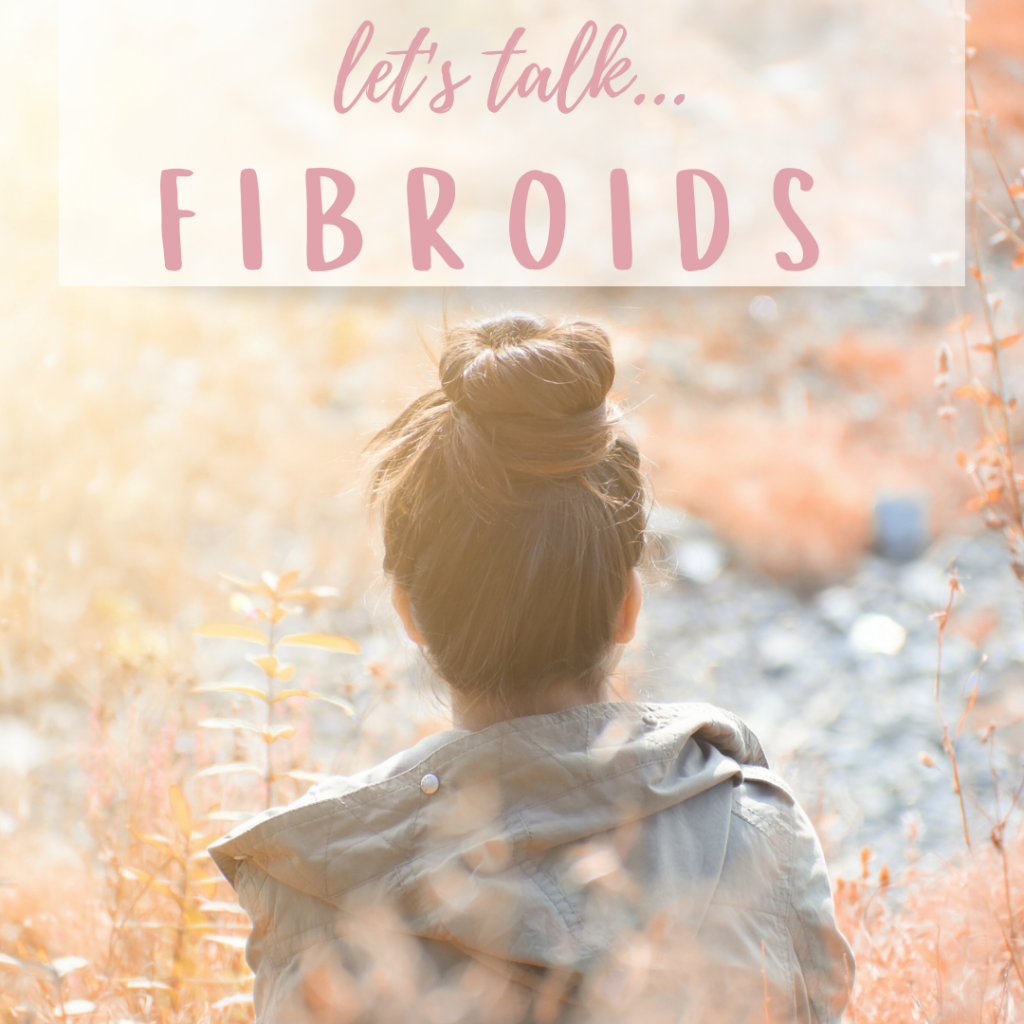
HOW ARE FIBROIDS TREATED?
Fibroids are non-cancerous growths or lumps of muscle tissue that form within the walls of the uterus. They can vary dramatically in size, some as small as a pea and others bigger than a rockmelon.
Sometimes women don’t even realise they have them and other times, they cause a myriad of problems like iron deficiency, frequent urination and painful sex to name a few.
We treat fibroids a few different ways. Resection via the hysteroscope is performed under general anaesthesia to cut out a fibroid that is partially or entirely inside the cavity of the uterus, and partially in the wall of the uterus. These are called ‘submucosal’ fibroids and they usually cause heavy periods.
A Myomectomy would be performed using laparoscopic surgery to completely remove a fibroid.
A hysterectomy is the only procedure that will permanently prevent fibroids from growing or recurring. This would be an option for multiple fibroids causing significant symptoms. This treatment would only be suitable for women who no longer want to have children.
If you suspect you may have fibroids, let’s find out and determine the right treatment path for you.
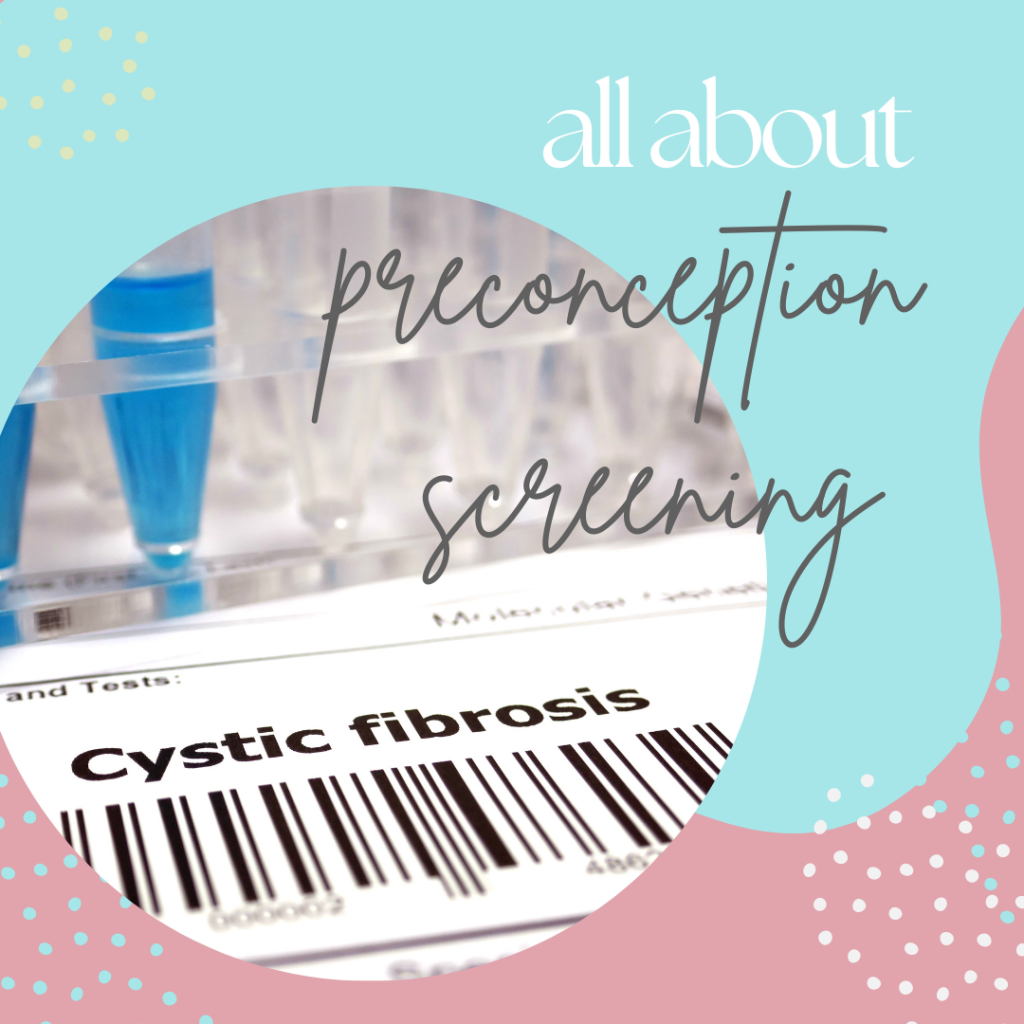
WHAT IS PRECONCEPTION SCREENING?
Preconception screening is a pre-pregnancy genetic test that is used to screen for disorders in both male and female patients. Preconception screening is important as it can indicate the likelihood of passing on genetic disorders to your child.
Recessive (or silent) genetic diseases do not cause symptoms in the people who carry them. They go largely undetected until the birth of a child with a genetic condition.
Preconception Screening involves a simple blood test. It looks at mutations in the DNA of 552 genes and determines your ‘carrier’ status for 590 diseases. Some of the more common diseases it can uncover include Cystic Fibrosis, adrenal hyperplasia, adrenoleukodystrophy, phenylketonuria.
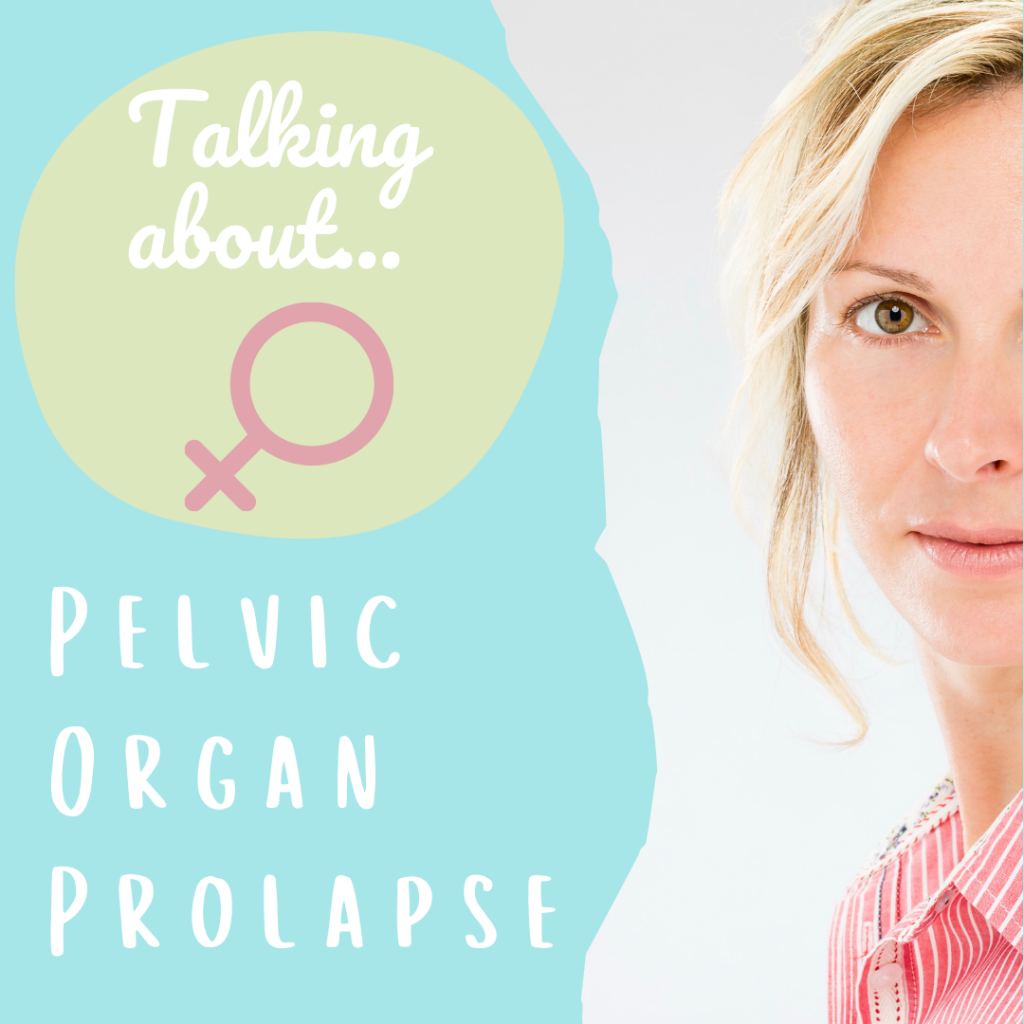
PELVIC ORGAN PROLAPSE
Pelvic Organ Prolapse is a treatable condition that occurs when weakened pelvic organs prolapse from their natural position into the vagina. This is a condition that can affect women of any age, but it is more common in post-menopausal women.
Thankfully it is not life threatening and as mentioned, is entirely curable, but there is no denying that it can cause discomfort and interfere with your daily activities.
Symptoms to look out for include:
⚪️ A heavy or dragging feeling in the pelvic area.
⚪️ A bulge in the front or back wall of the vagina (this can also extend outside the vagina).
⚪️ Distress and difficulties with bladder or bowel continence.
⚪️ Discomfort or lack of sensation during intercourse.
Depending on your level of prolapse, there are different treatment options. The main solution is a vaginal repair or tightening surgical procedure, to repair any bulged or moved organs. I have extensive experience working with women who have suffered prolapse so if you have any of the above symptoms, let me help you feel like your old self again.
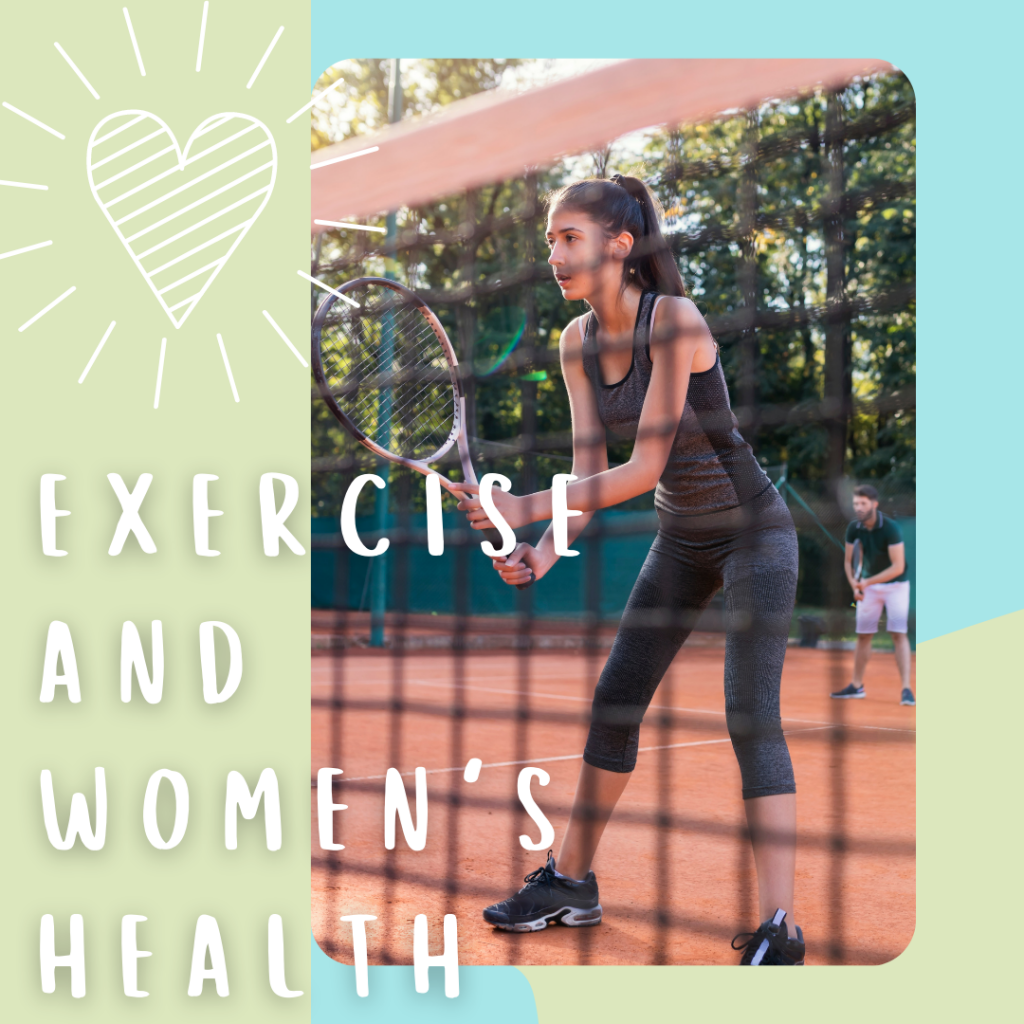
EXERCISE & WOMEN’S HEALTH
Some love it. Some hate it. Regardless of your feelings on the subject, the reality is that everyone should be exercising.
It’s well documented that exercising has endless health benefits for women, including decreasing the chances of cardiovascular disease, diabetes, breast cancer and osteoporosis. It also lessens the likelihood of suffering a fracture, enhances sleep and improves psychological health by reducing stress, anxiety and depression.
From a gynaecological viewpoint, once again there is nothing but good stuff to report when you up your heart rate. Exercise is beneficial for those trying to fall pregnant, as well as during pregnancy (*providing you are not increasing your physical activity from pre-pregnancy levels), and after your baby is born. Regular exercise helps prepare your body for pregnancy by strengthening and toning muscles, increasing oxygen in your blood and increasing flexibility. Also, moderate regular exercise can improve fertility, for both males and females.
Being active for just 30 minutes a day will make a big impact on your fitness and wellbeing, and if half an hour seems unrealistic, just do what you can. Even if you can only manage short windows of physical activity, the old “something is better than nothing” rule applies. Exercising is habitual so once you form the habit, it will become easier (and more enjoyable) to continue….and to increase the duration.

ON THE MEND…
Thank you all for your understanding and best wishes. Instead of my planned holidays, I was unexpectedly admitted to hospital and underwent major surgery.
I am recovering well but following doctors’ orders, am unable to return to work for a couple of weeks.
For those of you who have existing appointments, my staff will be in contact with you soon to reschedule.
I apologise for the inconvenience and understand your frustration.
Looking forward to being back in the office soon.
Michael.
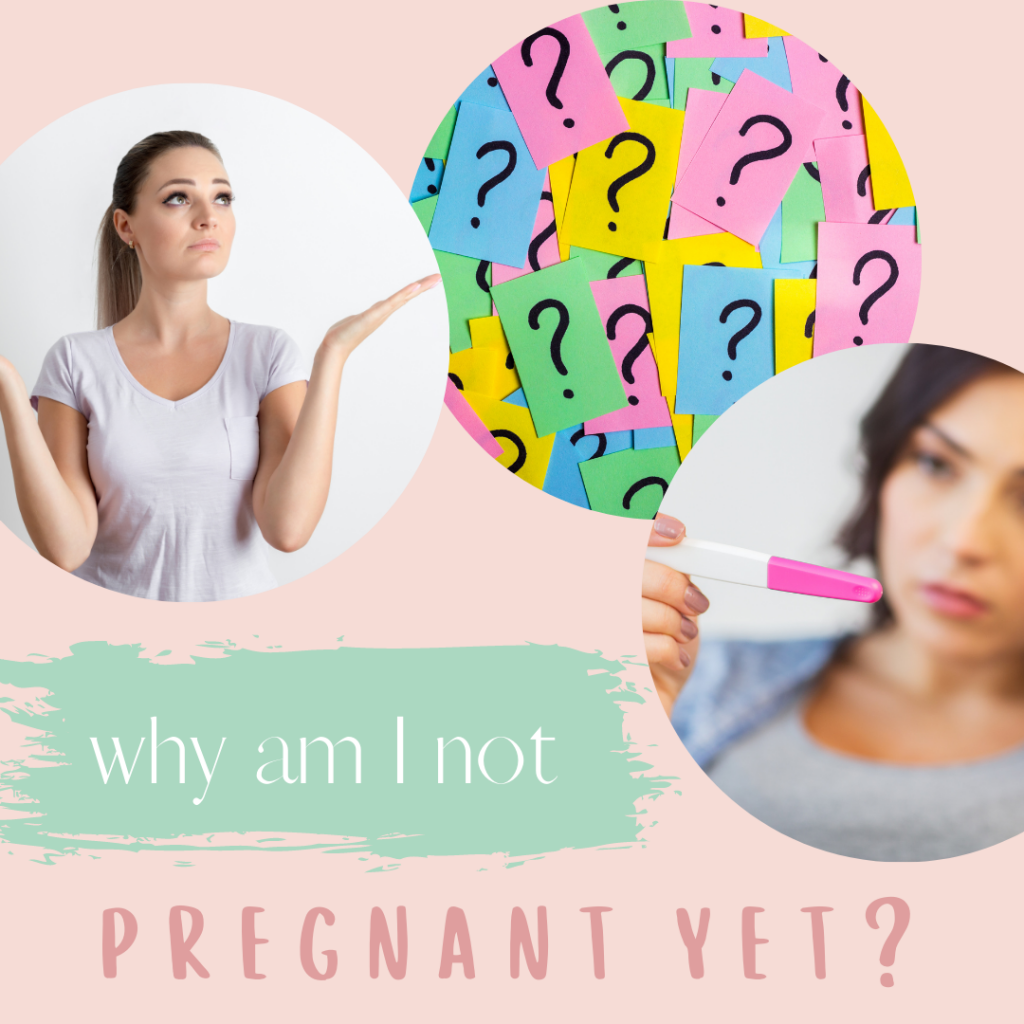
WHY AM I NOT PREGNANT YET?
Wondering why you’re not pregnant yet? You’re not alone and it’s important to know it’s not always an easy road. Here are just a few of the reasons why you might be struggling:
👶 Endometriosis. This is common and can wreak havoc with a woman’s reproductive system, and is therefore a frequent barrier to pregnancy.
👶 Polycystic Ovarian Syndrome (PCOS). With PCOS the follicles have difficulty growing and ovulating and this results in decreased fertility.
👶 Timing. In order to become pregnant, sperm needs to come in contact with the egg during ovulation.
👶 Ovulation issues. If you’re not ovulating it can be nearly impossible to become pregnant.
👶 Semen/sperm issues. It’s not always the woman. In fact, sperm quantity and quality are often the culprit when couples are having trouble conceiving.
👶 Age-related issues. After age 30, the chance of becoming pregnant decreases and by the time a woman is 40, there is a 1 in 10 chance of falling pregnant each month.
👶 Fallopian tube issues. If these are blocked, pregnancy does not occur.
👶 Uterine issues. A misshaped uterus or build-up of tissue in the uterus are just 2 reasons why pregnancy may be a challenge.
So as you can see, there are many possible explanations. Come and see me if you are concerned so that we can get you on track to starting/expanding your family 💕
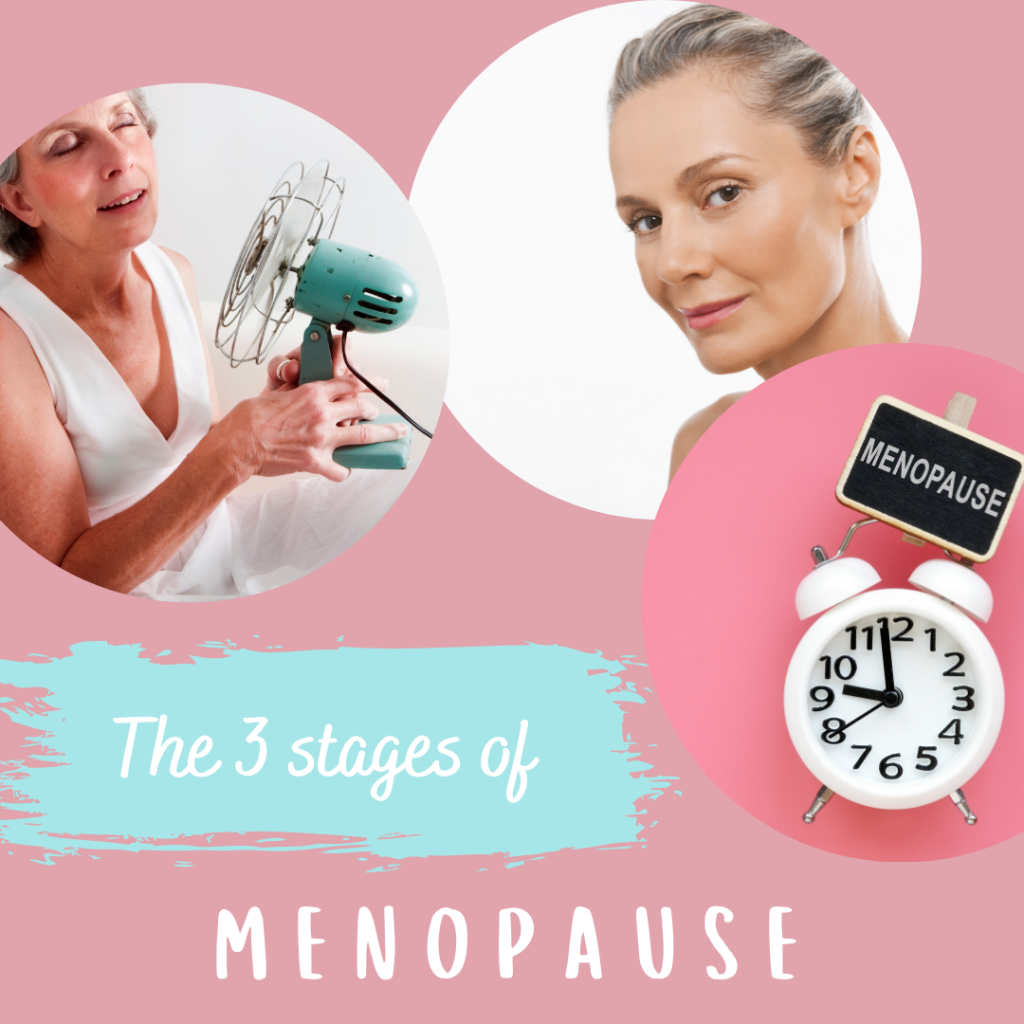
THE 3 STAGES OF MENOPAUSE
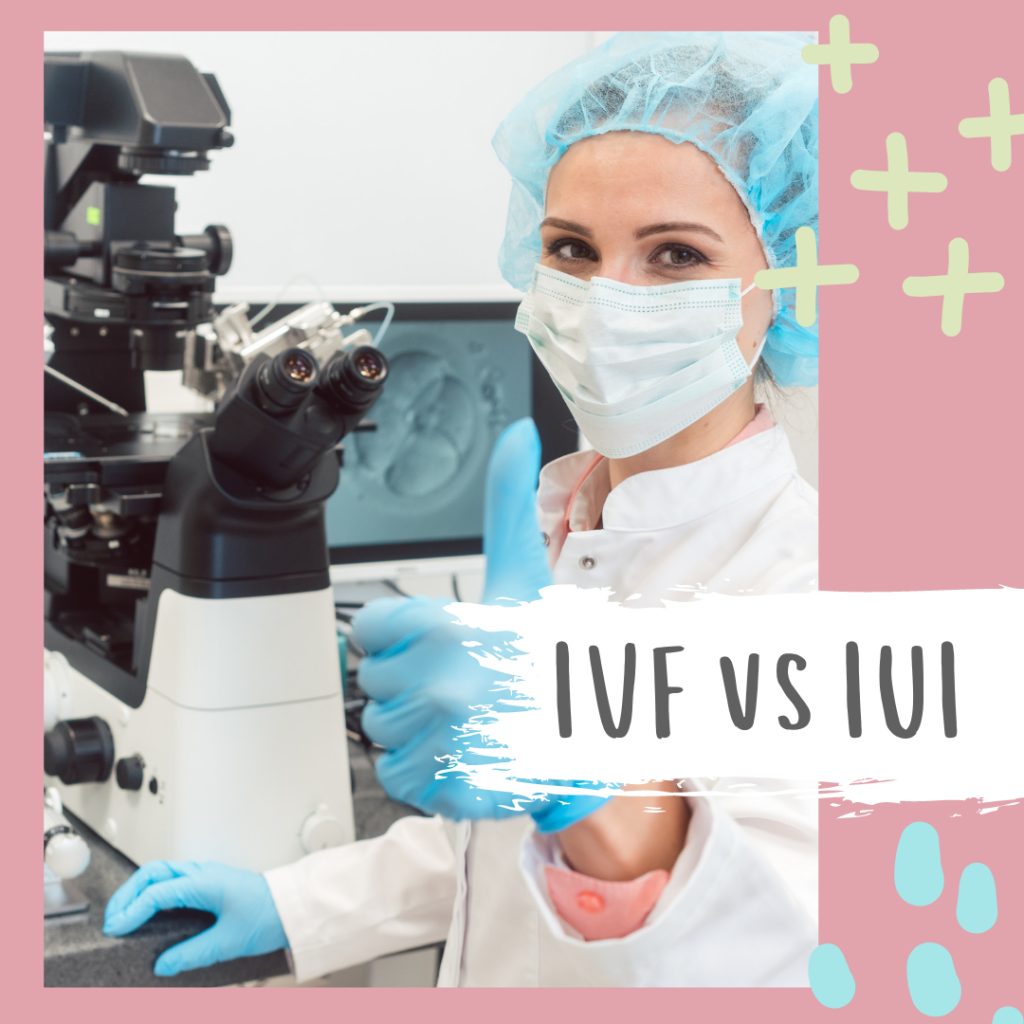
IVF VS IUI – WHAT IS THE DIFFERENCE?
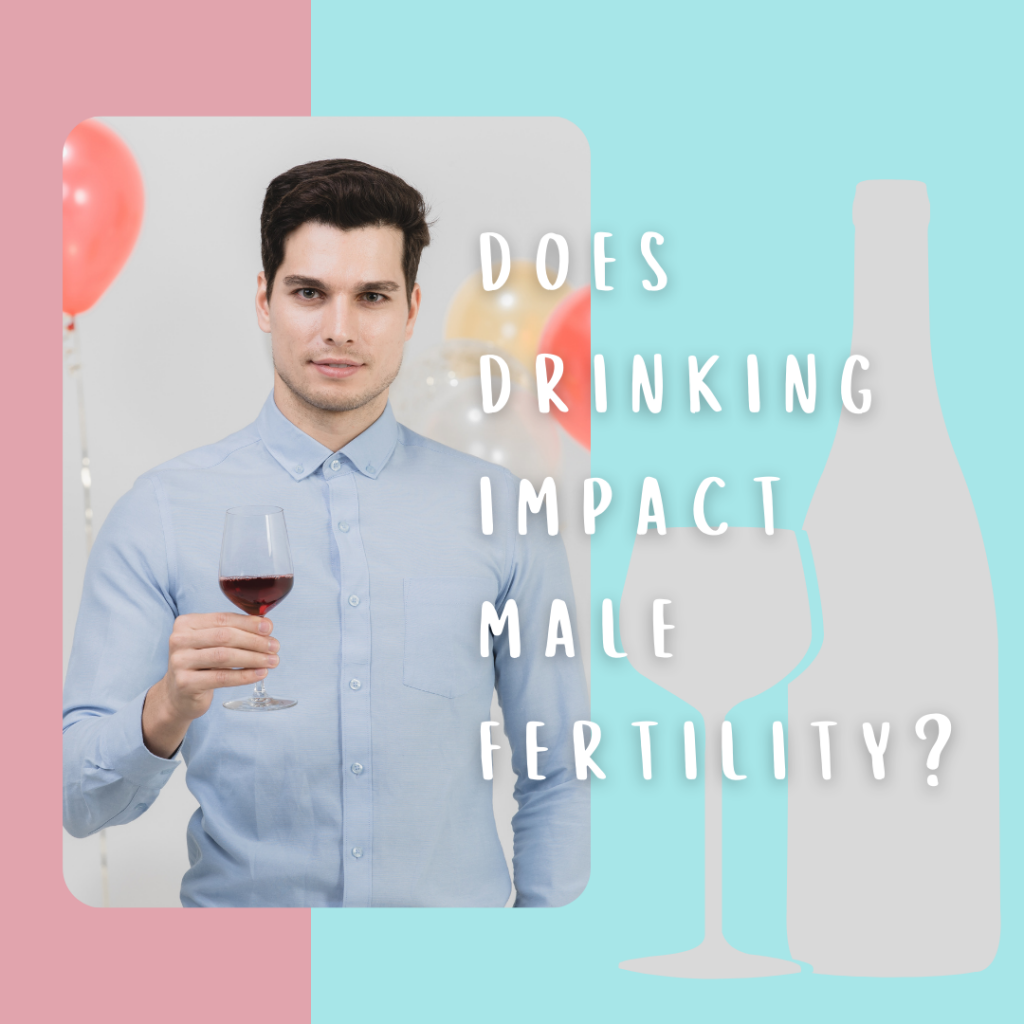
ALCOHOL & MALE FERTILITY
I was asked this question recently over Instagram and as it something I hear often, so I thought I would address it in short-form here on the blog.
Will drinking alcohol impact a man’s healthy sperm production? The answer is most definitely YES. Studies have shown this to be the case time and time again (sorry to be the bearer of bad news!).
However, if you are trying to conceive and have a wedding or special occasion on the horizon, a one-off “night off” is okay….within reason. Obviously exercise common sense and don’t completely over-indulge as this could be detrimental.
Best of luck to all those couples currently trying for a baby. We know it can be a rollercoaster, but the reward far outweighs the challenges you may face along the way!
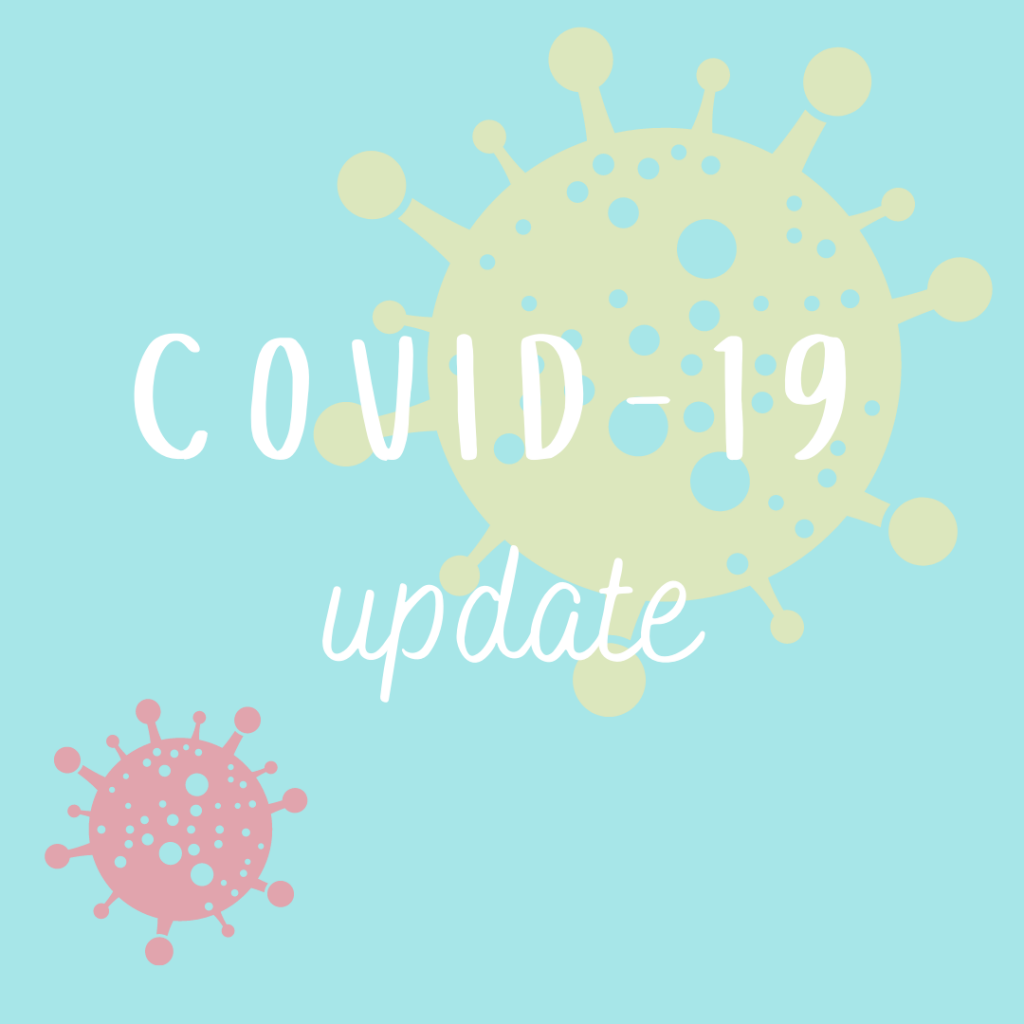
COVID-19 UPDATE AS AT 01ST AUGUST
Good morning everyone. Hope you are all hanging in there. Just a quick update for anyone with an upcoming appointment. Due to the current lockdown, please make sure you adhere to the following:
⚪️ Please come alone to your appointment as we try to minimize the number of people in our waiting room.
⚪️ Please ensure you are on time to your appointment (not early or late) so that we do not have too many people in our rooms at once.
⚪️ Wear your mask at all times.
⚪️ Sign in upon arrival.
⚪️ And very importantly, please let us know if you are feeling even in the slightest bit unwell so that we can reschedule your appointment. Please also go and get tested ASAP.
Let’s all do the right thing and hopefully lockdown won’t be extended beyond Tuesday 🤞 Stay safe everybody 🤍

COULD YOU HAVE FIBROIDS?
Fibroids are non-cancerous growths or lumps of muscle tissue that form within the walls of the uterus. Fibroids can vary in size ranging from the size of a pea to the size of a rockmelon or larger.
The majority of women won’t even know they have fibroids because they may not cause symptoms.
For others, symptoms will depend on the size, number and location of the fibroids. Some of the more common symptoms include:
⚪️ Heavy or prolonged periods
⚪️ Iron deficiency (anaemia)
⚪️ Frequent urination
⚪️ A pressure sensation on the bladder, bowel or back
⚪️ Lower back pain
⚪️ A lump or swelling in the abdomen
⚪️ Period pain
⚪️ Painful sex
For more information, either check out my website (link in bio) or give the practice a call so that we can discuss your symptoms / concerns.
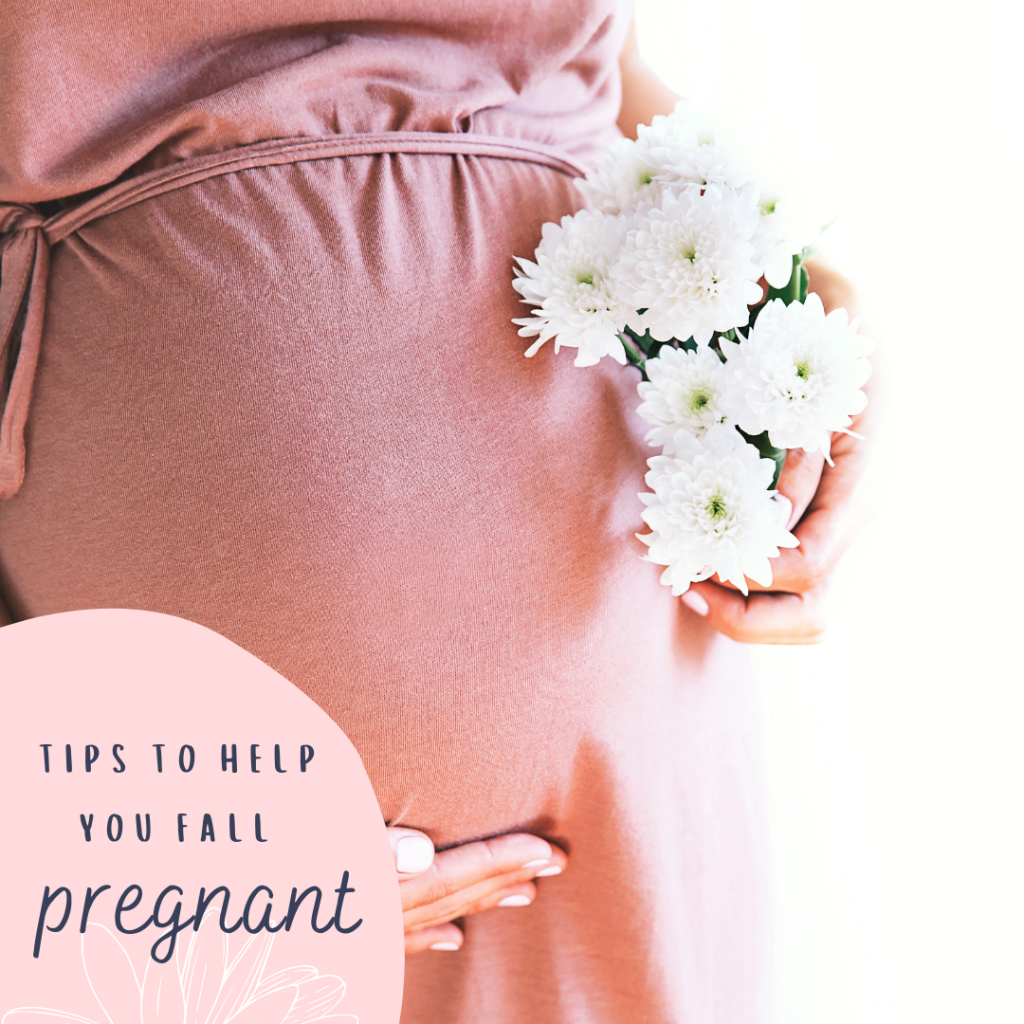
TIPS TO HELP YOU FALL PREGNANT
When planning for pregnancy, taking small steps to improve your health and lifestyle can go a long way to improving your fertility and getting pregnant. These include:
🤰 MAINTAINING HEALTHY WEIGHT
Being underweight or overweight can affect your hormones and fertility.
🤰 GETTING FIT FOR PREGNANCY
Regular exercise helps prepare your body for pregnancy by strengthening and toning muscles, increasing oxygen in your blood and increasing flexibility.
For both males and females, moderate regular exercise can improve fertility, reduce stress and anxiety.
🤰 PRECONCEPTION SCREENING
We recommend preconception screening of either partner so you are fully aware of possible genetic disease risks.
🤰 CREATE A HEALTHY ENVIRONMENT
Where possible, reducing the risk of exposure to toxins, infections or radiation for both you and your partner in the home and workplace can benefit your overall health, and your pregnancy.
🤰 PRENATAL VITAMINS
Eating a healthy, well-balanced diet will help you to get all the vitamins and minerals you need, but there is now evidence of other supplements that optimise egg and early embryo development.
I recommend that women start taking folic acid at least three months before conception. Folic acid is probably the simplest thing you can do to help your baby. Spina bifida is intimately related to low folic acid intake and if you take folic acid (contained in most antenatal multivitamins) you can almost eliminate Spina bifida.
For men who want to be fathers, some micronutrients such as zinc and selenium may help improve sperm quality and reduce the damage to sperm caused by free radicals.
🤰 PRE-PREGNANCY IMMUNISATION
During pregnancy, there are certain infections and illnesses that can be harmful to you and your developing baby. Immunisation is a simple and effective way to protect yourself and your baby from certain infections.
Before becoming pregnant, check that you have protection against diseases such as tetanus, hepatitis B, rubella, chickenpox, whooping cough and influenza. Speak to your GP or gynaecologist more about this.
🤰 SMOKING IN PREGNANCY
Studies show that smoking can lead to delayed conception, miscarriage and affect the environment in the uterus where baby will grow. In men, the chemicals in cigarettes can damage the sperm quality; decrease semen volume and sperm numbers.
If you follow these tips, you are giving yourself the best possible chance at conceiving that bundle of joy!
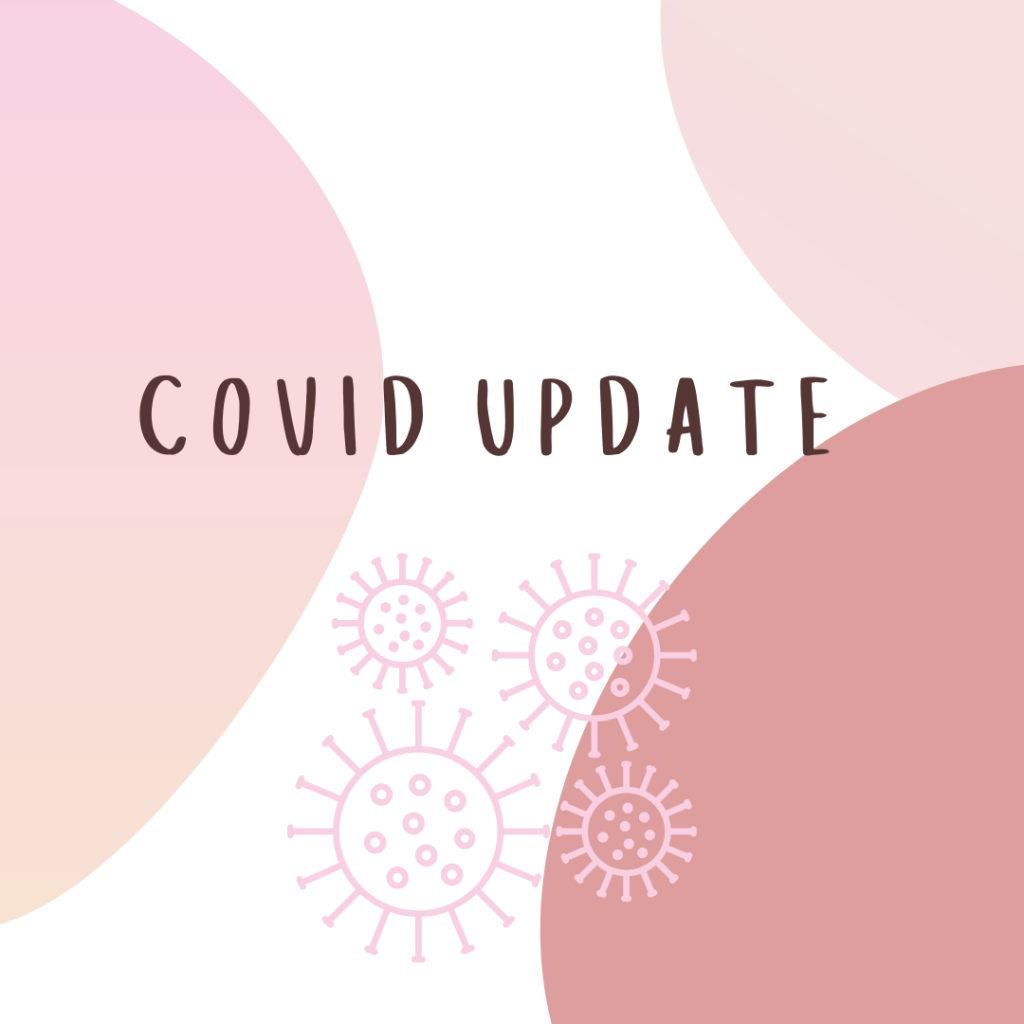
NEW COVID-19 RESTRICTIONS (AS AT 29 JUNE 2021)
Hi all. Just an update for everyone in light of the impending 3 day lockdown for our region.
I will still be seeing patients, however:
– Please come alone to your appointment.
– As advised yesterday, wearing a mask is mandatory.
– Upon arrival, we will require you to check-in by scanning a QR code.
– Please phone us to reschedule if you have any flu-like symptoms.
– Please phone us to reschedule if you have been in a known hotspot over the last 14 days.
As always, thank you for your cooperation 🙏 Hopefully come Friday 6pm, we’ll be on top of this outbreak and able to return to normal life 🤞
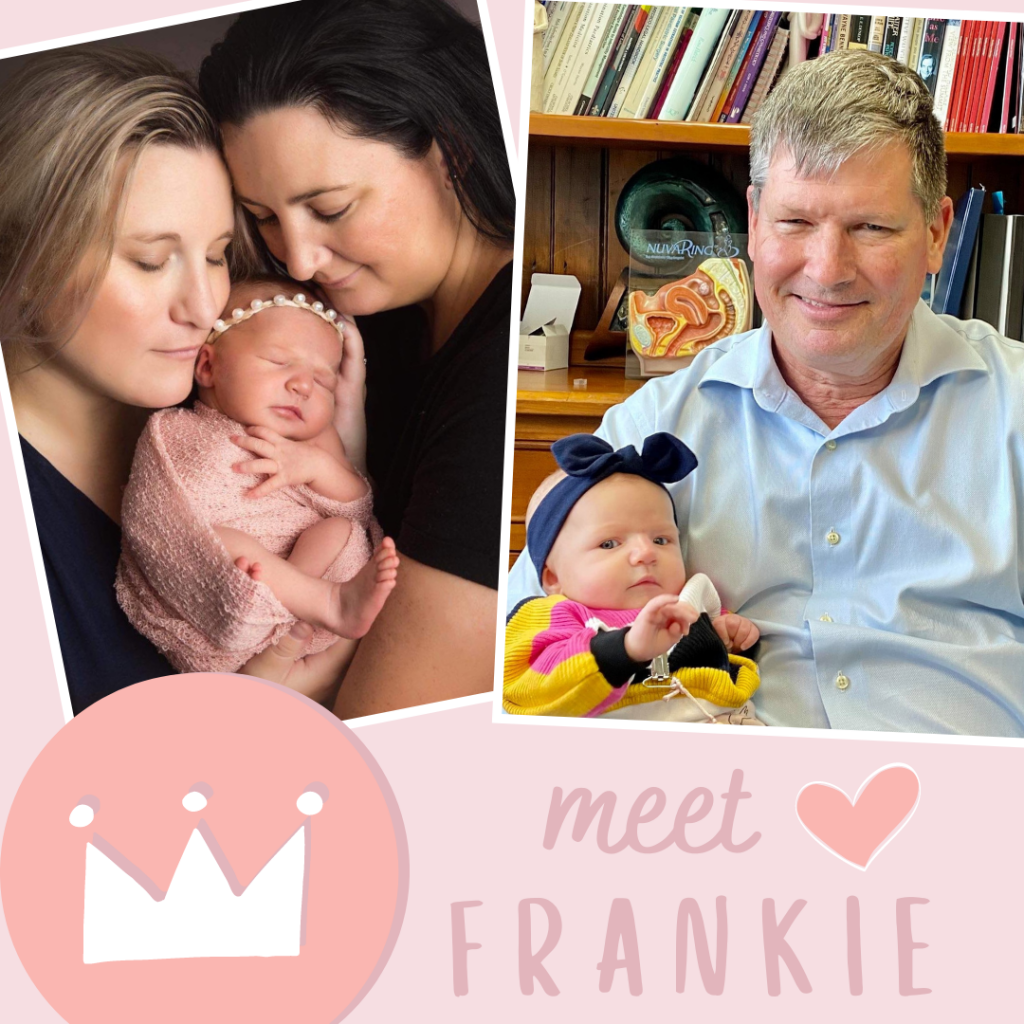
INTRODUCING FRANKIE
I’ve been waiting to introduce you all to this little angel and her amazing parents. Meet the adorable Frankie and her proud mums Toni and Haylee. These lovely ladies and I go back a loooong way and boy, has it been one heck of a ride!
There have been highs and there have been extreme lows; times when some people may have just given up on their dream…but not these two (or me!). And here we are – the highest of highs. Frankie is one loved little bub and I am so proud to have helped these truly special souls start a family 💖
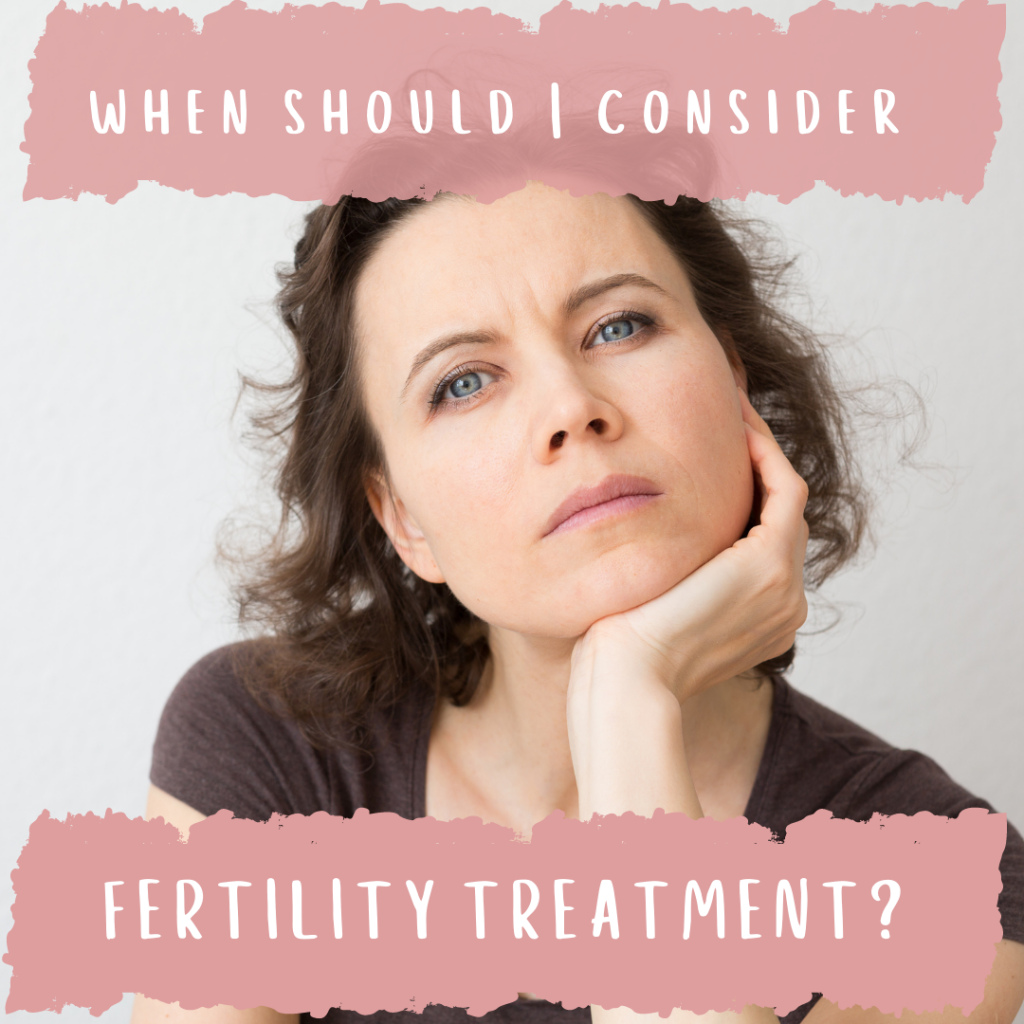
WHEN TO CONSIDER FERTILITY TREATMENT
Seeing a fertility specialist can be daunting thought, but the reality is that if you think there may be a problem, the sooner you talk to an expert the better your chances of falling pregnant will be.
Here are a few examples of when it’s advisable to come in for a chat:
🔸 You’re have been trying to conceive for 6 months or more.
🔸 You have a known history of conditions such as endometriosis, pelvic inflammatory disease or have experienced a miscarriage in the past.
🔸 You’re trying to fall pregnant and you have irregular, very painful or no periods.
🔸You suspect there may be a male issue e.g. known difficulties conceiving with a prior partner or testicular trauma.
I always do whatever I can do make my patients feel at ease and love giving tips on how to help make your dreams of having come true ✨
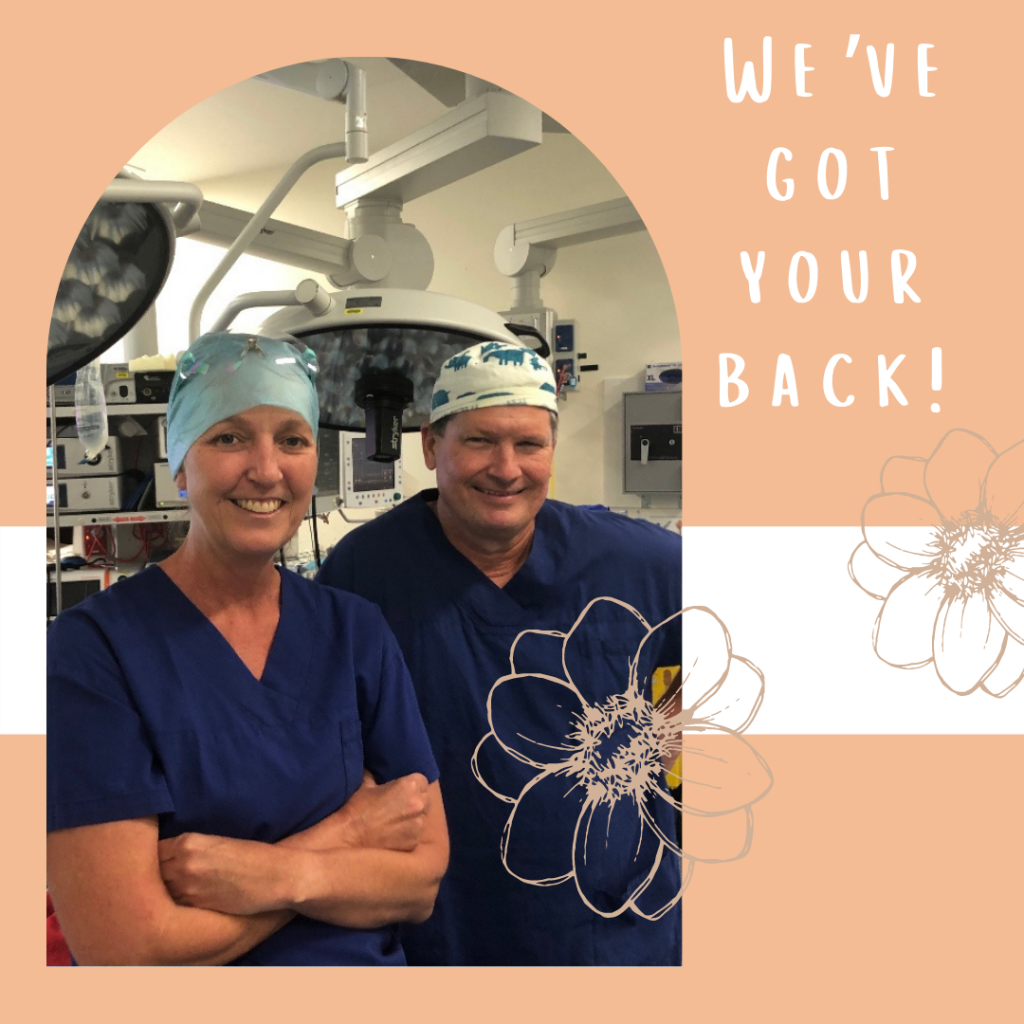
THE DREAM TEAM
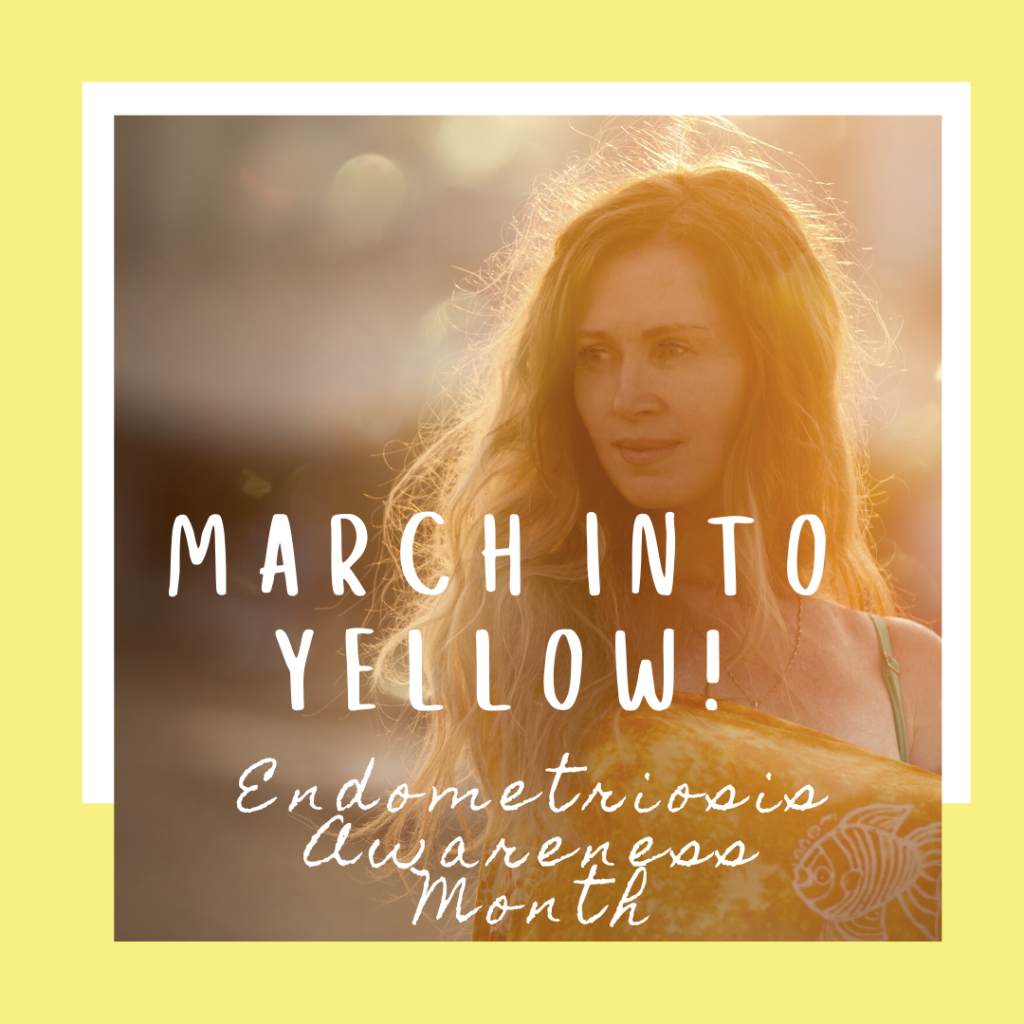
ENDOMETRIOSIS AWARENESS MONTH…
March is Endometriosis Awareness Month.
‘March into Yellow’ is a fun and easy way to open up a conversation about the disease and an opportunity for our community to show support.
March into Yellow encourages our broader community to show their support for the invisible illness by a wearing yellow. It is also a fun way to raise funds for Endometriosis Australia who support endometriosis education and research.
To find out more or to hear about other ways you can help raise funds, click on the below.
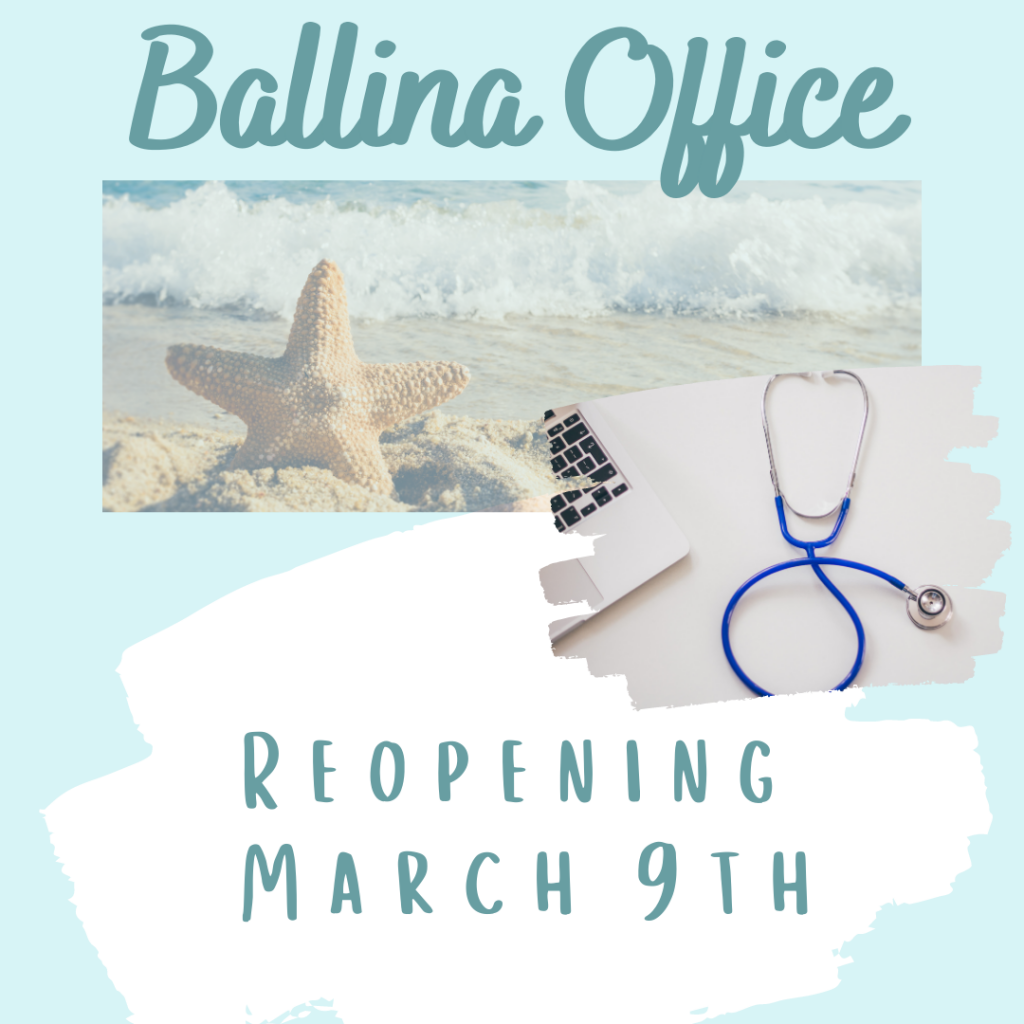
Exciting announcement for our Northern NSW patients! On Tuesday 9th March, I will once again be consulting from my Ballina office for fertility management!
Patients in the region can save lots of time and energy driving up to the Gold Coast, and instead come and see me at 46 Tamar Street.
Bookings can be made for either the Ballina or Gold Coast clinic by calling (07) 5564 8011. Looking forward to making your lives easier and helping you start or expand your families.
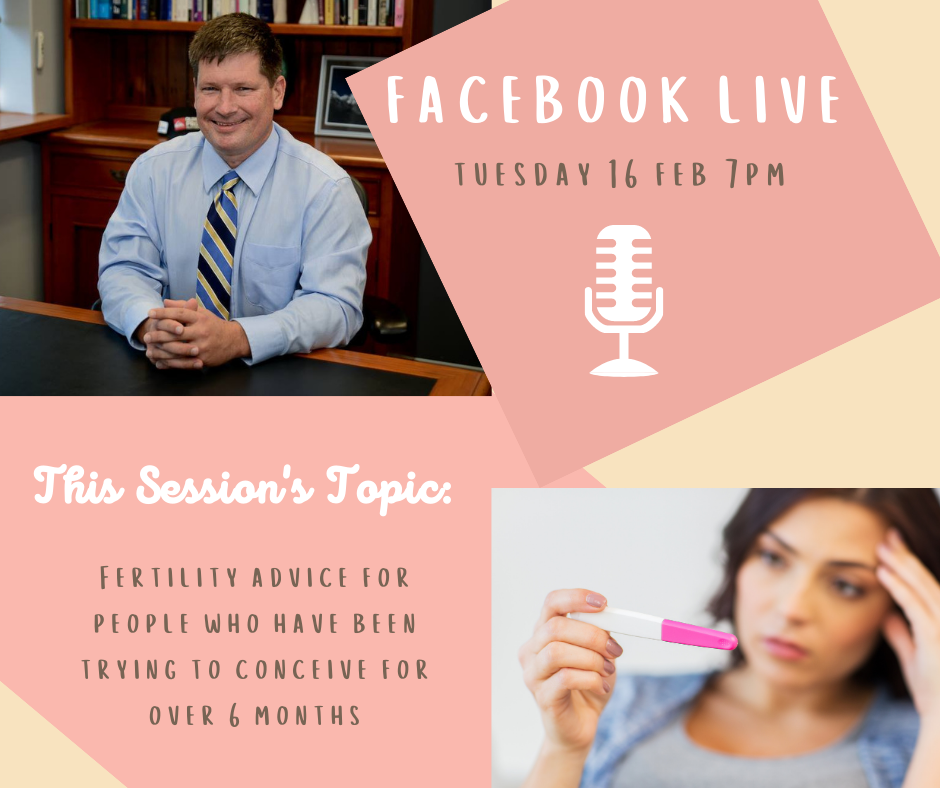
Have you been trying unsuccessfully for over 6 months to have a baby? If the answer is yes, please tune in to my upcoming Queensland Fertility Group Facebook Live Q&A. Topics on the agenda include:
No registration is required. Just head over to the Queensland Fertility Group Facebook page (link below) on Tuesday 16th February at 7pm and I will appear on the page.
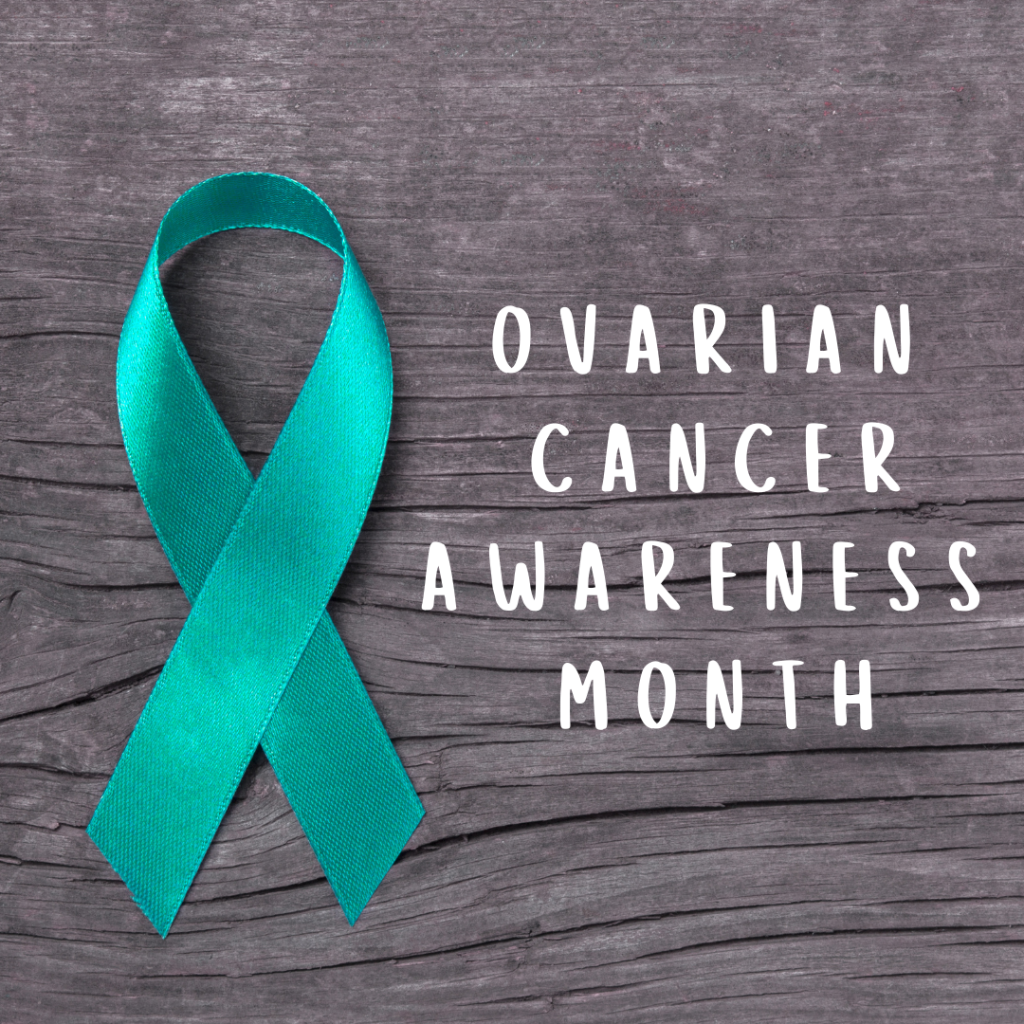

OFFICE CHRISTMAS HOURS: 2020
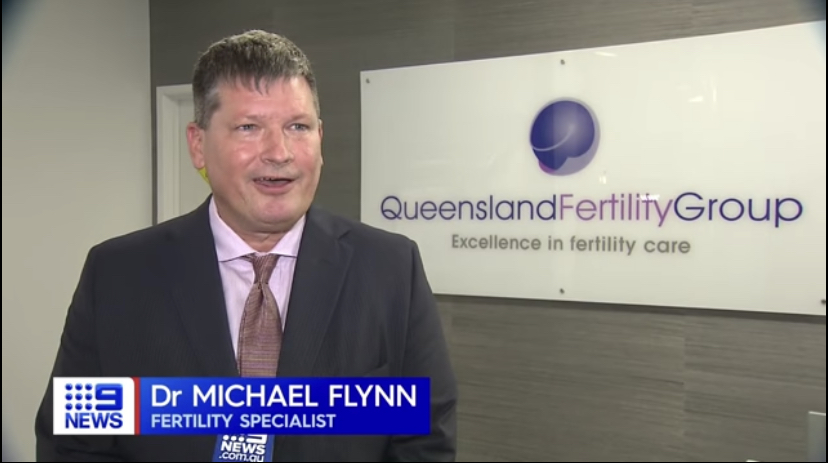
COVID KIDS – CHANNEL 9 GOLD COAST NEWS
Covid kids! It’s a term you’re going to hear more and more as IVF treatments and pregnancies continue to increase in the wake of the pandemic.
Channel 9 Gold Coast asked me for my thoughts and featured my lovely patients Cassie and Alex. They are one of the many lucky couples experiencing the ultimate joy during these difficult times.

HE’S ARRIVED!


more From the Blog…

Age and Female Fertility It’s a fact that women are having children later – and that’s understandable given the number of choices women have in all aspects of their life.
I have no periods: Is it Polycystic ovaries? Polycystic ovaries are both the simplest and most difficult of my consultations. What is a normal monthly cycle? To understand polycystic ovaries
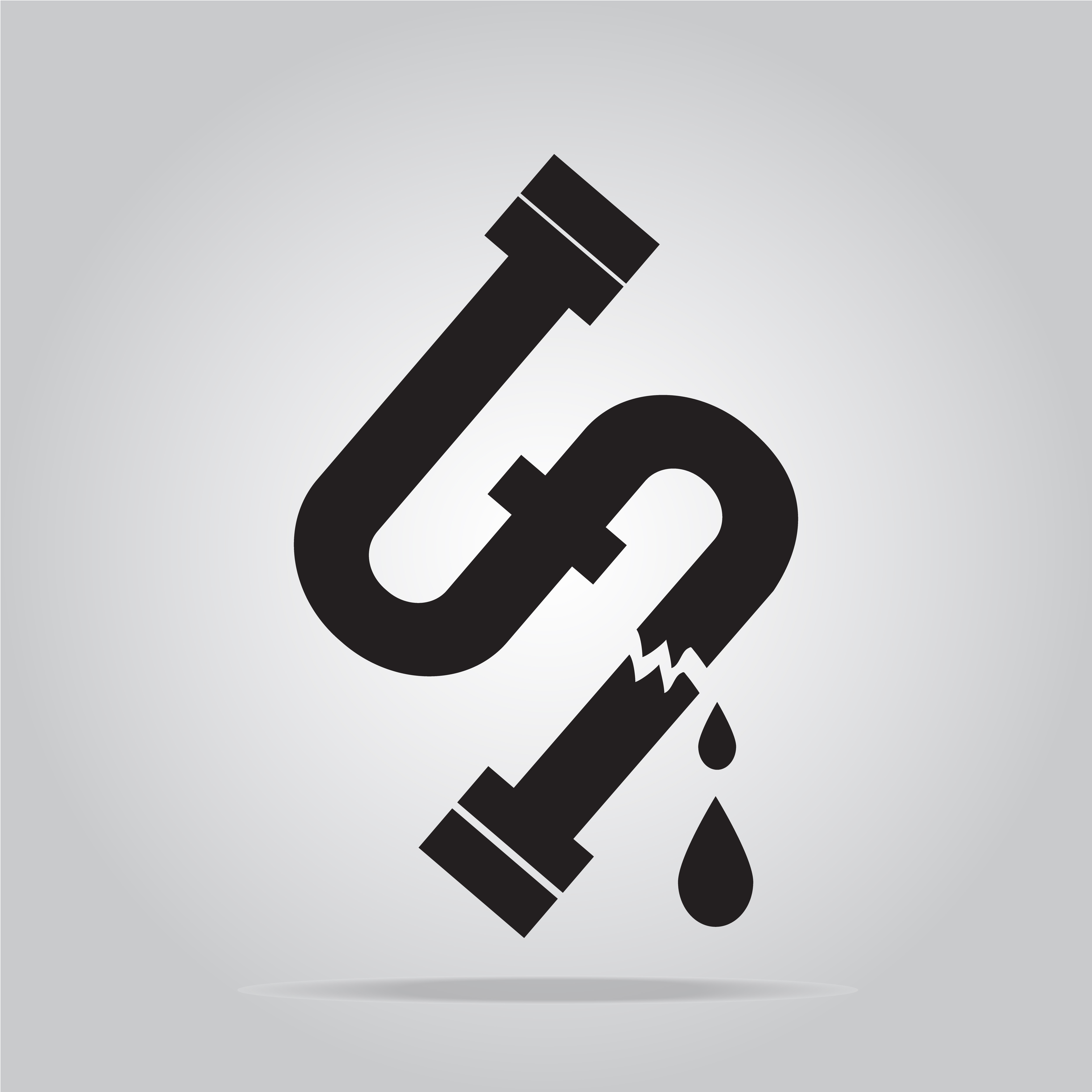
Is Vasectomy Reversal The Answer for Infertility? When couples come to see me for infertility, it is not unusual that one of the contributing factors of them not becoming pregnant

How do I know if I have fertility problems? There are many issues that can point to a woman possibly having fertility problems. To confirm the problems you will need
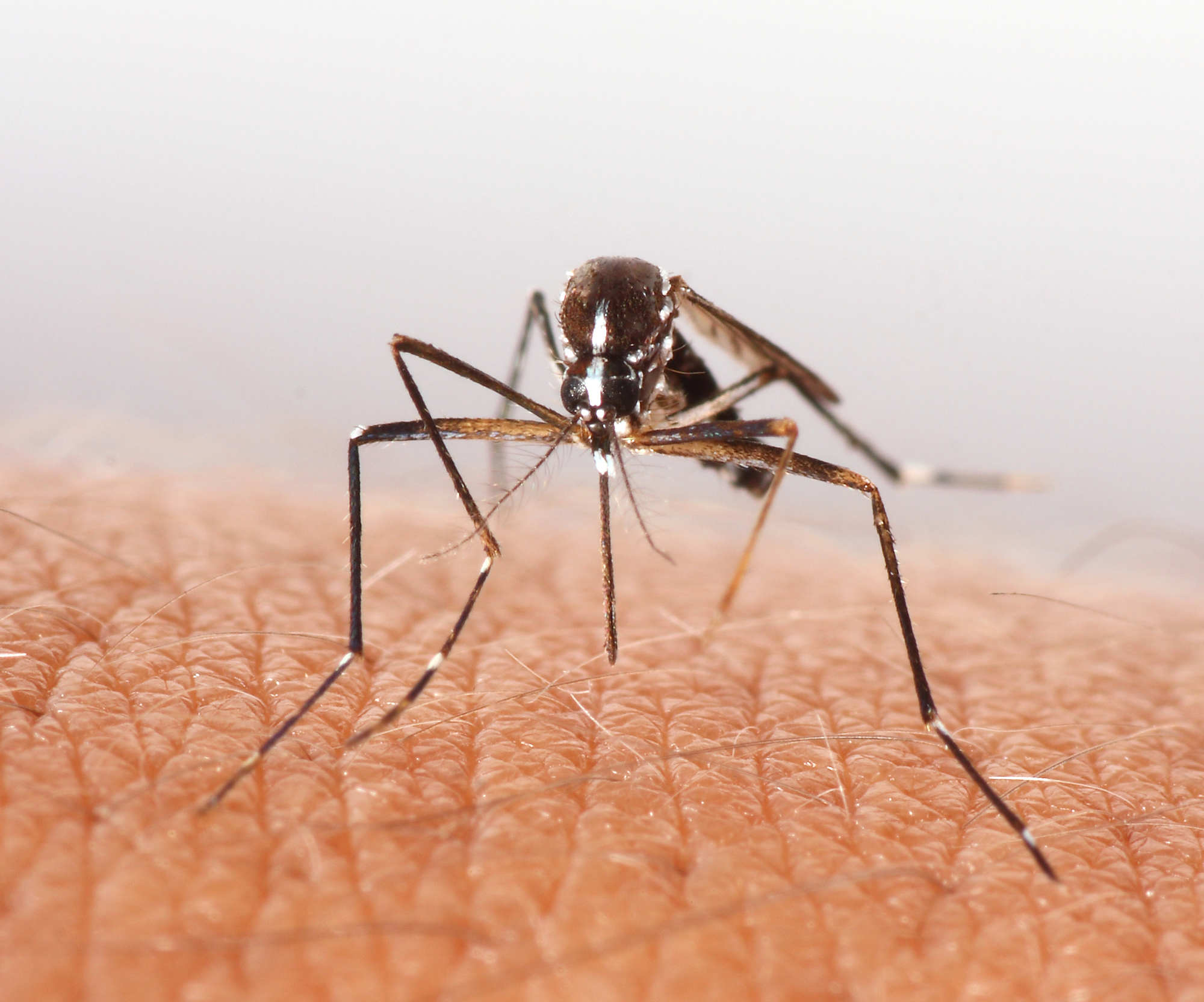
What is Zika Virus? There has been an increasing amount of media relating to the Zika Virus and the possible effects on pregnant women. So, what is Zika virus and
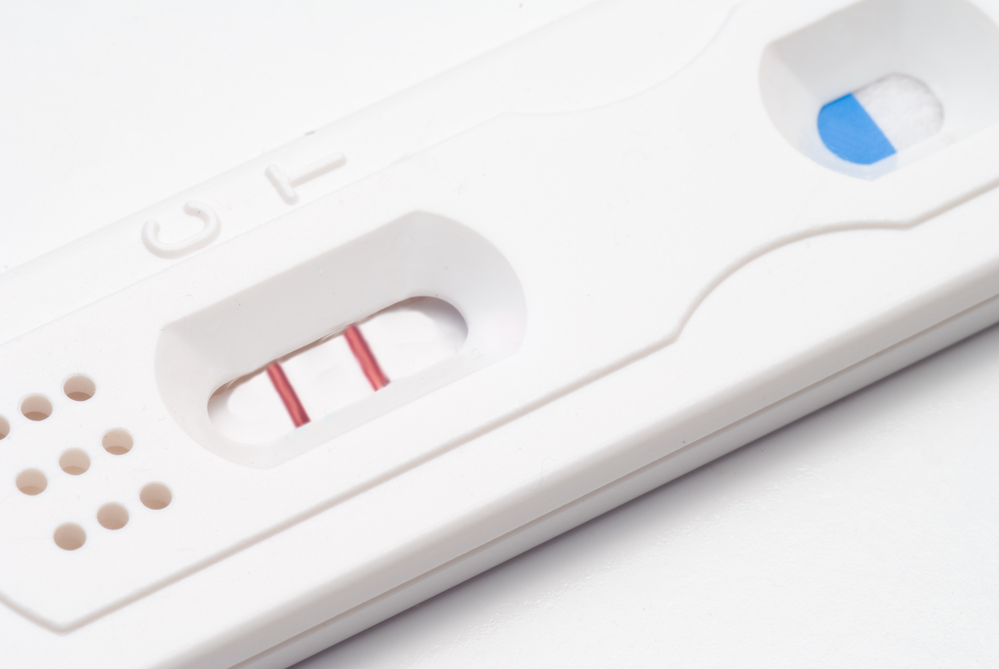
It’s Positive! You’re Pregnant! That first excitement of that line on the pregnancy test changing colour is now giving way to the question of “what now?” Your first step is
Ask your GP for a referral to Dr Michael Flynn - print this Referral Request and hand it to your GP.
